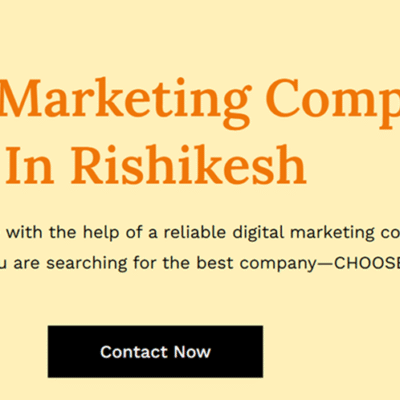In today’s fast-paced digital world, staying ahead in the online marketing landscape requires more than traditional techniques. Search engines continue to evolve, and so should the strategies used to optimize for them. One of the most transformative forces in this space is artificial intelligence (AI). By combining AI with Search Engine Marketing Services, businesses are not only improving their rankings but also streamlining the entire optimization process. Understanding how to leverage AI for SEO can help brands remain competitive, visible, and relevant.
The Role of AI in Modern SEO
Artificial Intelligence has dramatically altered the way SEO is approached. From analyzing search intent to predicting keyword performance, AI tools now assist marketers in making data-driven decisions at scale. These intelligent systems help interpret massive amounts of data quickly, providing insights that would take humans days or weeks to generate.
Search engines like Google use AI-based algorithms, such as RankBrain and BERT, to better understand user queries and serve the most relevant results. To align with these systems, marketers must adopt AI-powered tools that enhance their strategies and improve user engagement.
Keyword Research and AI
Effective keyword research is the foundation of successful SEO. AI-powered tools can scan thousands of potential keywords, assess competition, and forecast potential traffic with exceptional accuracy. These tools use machine learning to refine results, focusing on user intent rather than just keyword volume.
Traditional keyword research often relied on guesswork and trial and error. Now, AI algorithms help marketers identify long-tail keywords and semantic phrases that better match the searcher’s expectations. This shift not only improves rankings but also enhances the user experience on the site.
Content Creation and Optimization with AI
Content is still king in SEO, but AI has made content creation smarter and more efficient. AI-driven content tools assist in generating high-quality articles, blogs, product descriptions, and more, based on trending topics and SEO best practices. These tools evaluate readability, keyword density, tone, and engagement potential.
Moreover, AI helps in content optimization by analyzing top-performing competitor pages and suggesting improvements. For example, it can recommend additional keywords, image alt tags, or even internal links to boost relevance and authority.
While AI can generate content, it’s essential to maintain a human touch. The best-performing content still combines AI efficiency with human creativity, ensuring it resonates with readers and search engines alike.
Technical SEO and AI Automation
Technical SEO involves aspects such as site speed, mobile responsiveness, structured data, and crawlability—areas where AI excels. AI tools can perform regular website audits, highlight technical issues, and suggest real-time fixes. This proactive approach helps prevent minor technical issues from becoming significant obstacles to rankings.
AI also assists in creating structured data markup, which makes content more understandable to search engines. This improves the chances of appearing in rich snippets and featured answers, increasing click-through rates.
Automation of repetitive technical tasks like 404 error detection, redirection setups, and sitemap generation can save time and reduce the margin of error, allowing SEO specialists to focus on strategy and creativity.
AI and Voice Search Optimization
The rise of voice-activated devices has changed how people search online. AI plays a vital role in optimizing for voice search by focusing on natural language queries. Voice searches tend to be longer and more conversational, making it essential to adapt keyword strategies accordingly.
AI tools analyze conversational data and user behavior to help marketers understand the nuances of voice queries. By implementing these insights, websites can rank higher in voice search results, especially for local SEO efforts.
Predictive Analysis and SEO Strategy
One of the most powerful aspects of AI is its predictive capabilities. By analyzing past data and current trends, AI can forecast future SEO performance. This enables marketers to proactively adjust their strategies before performance dips occur.
For example, AI can detect declining keyword trends and suggest emerging topics or formats that align with current user interests. This helps maintain a forward-looking SEO strategy that evolves with search behavior and algorithm updates.
Link Building and AI Integration
Link building remains a crucial component of SEO. AI can identify high-authority websites, assess backlink opportunities, and even automate outreach campaigns. It evaluates link quality, anchor text distribution, and potential risks from toxic links, offering a more strategic approach to link building.
By using machine learning, AI can also determine which backlink profiles are likely to result in better rankings, helping businesses invest time and resources in the most impactful relationships.
Leveraging AI in SEM Services
AI is not only revolutionizing SEO but is also enhancing SEM services. With AI, paid search campaigns become more targeted, personalized, and cost-effective. AI tools analyze real-time data to optimize bids, adjust ad copy, and improve targeting precision.
By integrating AI into both SEO and paid search efforts, businesses can develop a comprehensive digital marketing strategy that drives higher ROI. This synergy ensures consistent messaging across channels and maximizes visibility on search engine results pages.
Human Oversight Still Matters
Despite all the advantages of AI, human insight remains critical. AI can provide the data and tools, but strategic thinking, brand voice, and ethical considerations must come from humans. The best SEO strategies combine AI’s analytical power with human creativity and experience.
Marketers must regularly review AI-generated insights, validate recommendations, and adjust campaigns based on business goals. Blind reliance on automation can lead to missed opportunities or errors, especially if the tools are not configured properly.
Final Thoughts
Mastering SEO with AI is no longer optional; it’s a necessity in the ever-evolving digital marketing landscape. From keyword research and content optimization to technical SEO and predictive analytics, AI is streamlining processes and enhancing outcomes across the board. Businesses that effectively incorporate AI into their SEO strategies will gain a significant edge over competitors.
However, success lies in finding the right balance between automation and human input. By staying informed, experimenting with AI tools, and continuously adapting strategies, businesses can harness the full potential of AI to achieve long-term SEO success.




